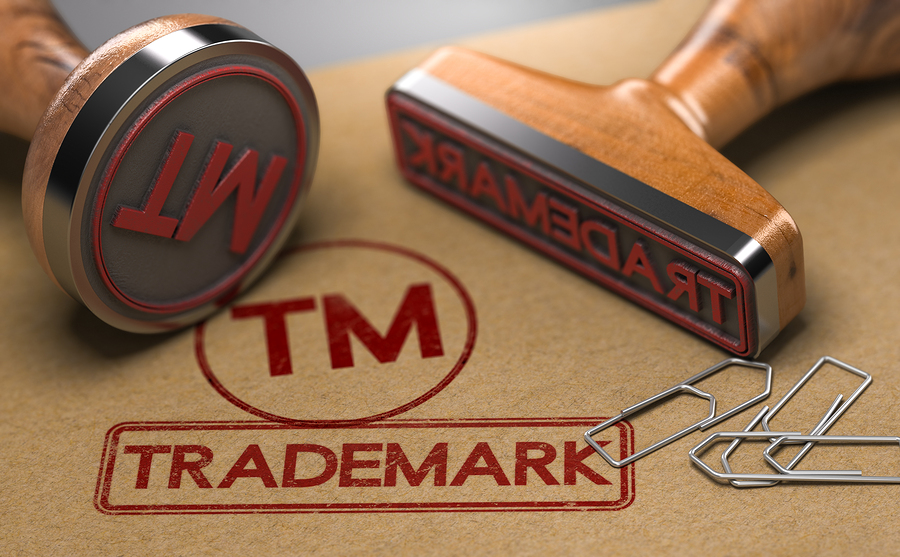
SCOTUS Determines Trademark Licensee’s Rights Survive Rejection by Debtor in Bankruptcy
A debtor has the right to assume or reject any executory contract or unexpired lease through its bankruptcy, pursuant to the Bankruptcy Code. A trademark license is an executory contract that is subject to assumption or rejection if performance remains due from both parties to the contract. A debtor will reject a trademark license if it believes that there is no net benefit to the counterparty to the contract continuing to perform its obligations and thereby will repudiate any further performance of its obligations. While there is virtually no controversy over these premises, there exists substantial debate about the effect of rejection on the existing rights of the counterparty under a trademark license.
Except in special circumstances, the Bankruptcy Code generally does not elaborate on the effect of rejection of a contract other than to direct in section 365(g) that rejection “constitutes a breach of such contract or lease.” One special circumstance where the Bankruptcy Code does elaborate on the effect of rejection is section 365(n), which applies to the rejection of “intellectual property” licenses (which does not specifically include trademarks). Upon rejection of such licenses, the non-debtor party may (a) treat the license as terminated and file a pre-petition rejection damages claim or (b) elect to retain its rights under the license for the duration of the license and any extensions provided therein (subject to certain requirements in section 365(n)).
But, the exclusion of trademarks from the definition of “intellectual property” under the Bankruptcy Code has permitted various Circuit Court’s to differ in their treatment of rejected trademark licenses. The Fourth Circuit and the First Circuit have held that the rejection of such contracts terminates the licensee’s rights under the license, while the Seventh Circuit has held that it does not. Compare Lubrizol Enterprises v. Richmond Metal Finishers, 756 F.2d 1043 (4th Cir. 1985) (holding termination of trademark license occurs upon rejection) and In re Tempnology, LLC, 879 F.3d 389 (1st Cir. 2018) (same) with Sunbeam Products, Inc. v. Chicago Am. Mfg., LLC, 686 F.3d 372 (7th Cir. 2012) (holding rejection of trademark license does not result in termination).
The Supreme Court finally agreed to resolve this debate in Tempnology, where the Court adopted the minority view amongst lower courts and held that the rejection of a nonexclusive trademark license does not automatically terminate such license and that all rights that would ordinarily survive a contract breach remain in place. This holding affords significant rights to trademark licensees, who now (a) can unequivocally continue to use licensed trademarks in any jurisdiction, notwithstanding a rejection of the underlying licenses (unless the contract provides otherwise) and (b) appear not to be subject to the strictures contained in section 365(n) of the Code that apply to other intellectual property.
Facts
Prebankruptcy, Debtor Tempnology, LLC (the “Debtor”) granted Mission Product Holdings, Inc. (“MPH”) the non-exclusive right to use the COOLCORE trademark in the United States and around the world, and the exclusive right to distribute certain COOLCORE products in the United States.
The Debtor filed bankruptcy approximately ten months prior to the expiration of the license and subsequently sought to reject the non-exclusive license with MPH. A battle ensued as to the effect of the Debtor’s rejection. The Bankruptcy Court held that the rejection of the trademark license resulted in termination of the licensee’s rights under the contract. On appeal, the First Circuit Bankruptcy Appellate Panel sided with the Seventh Circuit and held that rejection was merely a breach and the trademark licensee retained its rights. However, the First Circuit in Tempnology eventually reversed the BAP opinion and held that the rejection of the trademark license terminated such license. The Supreme Court disagreed with the First Circuit’s ruling.
Analysis
The Supreme Court’s rationale relies primarily on the plain language in the Bankruptcy Code. Section 365(a) gives a debtor or trustee the option, subject to court approval, to assume or reject any executory contract. Section 365(g) explains that rejection “constitutes a breach of [an executory] contract,” deemed to occur “immediately before the date of the filing of the petition.” But, a “breach” is not defined in the Code, the Supreme Court found that “[i]t means in the Code what it means in contract law outside bankruptcy.”
In a typical situation under state law, when one party breaches a contract by nonperformance, the nonbreaching party has the option to either (a) continue performance and sue for consequential damages or (b) refuse performance altogether. But, the choice to terminate is up to the nonbreaching party. Thus, the nonbreaching party may hold continuing rights in a contract notwithstanding a breach by the counterparty.
The Supreme Court extended this typical situation to bankruptcy settings. Once a debtor rejects a contract, the non-breaching counterparty has the option of walking away from the contract or continuing performance and then filing a claim for breach against the debtor. The Court found this typical scenario to be applicable to trademark licenses when a debtor elects to reject such licenses. In such instances, rejection does not result in the rescission of the trademark license and, instead, the non-debtor licensee, in its discretion, can continue to do whatever the license authorizes, even if the debtor stops performing.
The Debtor’s main argument in Tempnology was that because several exceptions in section 365 expressly delineate the rights that a nonbreaching, non debtor counterparty continues to hold following rejection, it can be logically inferred that the general provision in section 365(g) does not provide similar protections to a nonbreaching party. But, the Supreme Court found that the Debtor’s argument unnecessarily elevates the importance of subsidiary provisions in section 365 above the general provision. In particular, relying on the exceptions in section 365 to alter the meaning of section 365(g) (general provision) ignores the plain meaning of the statute. The Court also found that the statutory exceptions were all the result of knee-jerk reactions by Congress to address discrete problems, which were generally caused by unpopular judicial rulings.
The Debtor’s last argument was that the special features of trademark laws warrant a unique approach in order to fulfill the Code’s goals of allowing a debtor to relieve itself of onerous contracts. In particular, the Debtor focused on a licensor’s duty to continue to monitor and “exercise quality control over goods and services sold” under a license. Absent maintaining such supervision, the mark will naturally decline in value and may eventually become altogether invalid. So, when a debtor rejects such a license, it is faced with the inevitable decision to expend scarce resources to monitor its marks in order to preserve their value. According to the Supreme Court, however, the problem with this argument is that there is no trademark specific provision in section 365 to sanction such rationale and, in any instance, the argument could be used to justify the rescission of any executory contract (not just trademark licenses), rendering section 365(g) meaningless.
Implications
The rule established by the Supreme Court in Tempnology appears simple enough: rejection of a trademark license constitutes a breach by the debtor but not a termination or rescission of such contract. The non-breaching party must now rely on applicable nonbankruptcy law to determine what rights continue to exist after the debtor’s breach (i.e., rejection).
But, while this rule resolves the Circuit split about using a rejected trademark license, there are still important, unanswered questions following the Supreme Court’s decision. Fundamentally, unlike the road map set forth by section 365(n) with respect to other IP licenses, there is no clear roadmap defining all the post-rejection rights of trademark licenses.
For example, the Court’s ruling—which only dealt with a nonexclusive trademark license—leaves open the effects of rejection of an exclusive trademark license. Another question is whether a trademark licensee can retain its right to any optional license extension. While section 365(n) clearly answers these questions with respect to other IP licenses, it is unclear, in light of Tempnology, whether a debtor can circumvent such rights upon rejection.
Tempnology also does not address the broader issue of how a party’s equitable remedies in other contexts, such as a right of specific performance, a right of first refusal, or a covenant not to compete, should be treated following the debtor’s rejection of its trademark license. The Seventh Circuit, in dicta, broadly stated in Sunbeam Products that the effect of rejection is to convert a debtor’s unfulfilled obligations into a prepetition damages claim. Section 101(5) of the Bankruptcy Code recognizes that certain equitable remedies can be converted into a monetary damages claim that is dischargeable in bankruptcy. Not all equitable rights, however, are dischargeable, and section 101(5)(B) of the Bankruptcy Code only converts an equitable remedy for breach of performance into a dischargeable “claim” “if such breach gives rise to a right to payment.” This unaddressed issue may become the new focus of the debate over the effects of rejection of a trademark license.
In short, while the Supreme Court’s opinion no doubt attempted to bring some clarity into this area of law, in the end, clients should heed the comments in Justice Sotomayor’s concurring opinion, where she states: “[T]he [Supreme] Court does not decide that every trademark licensee has the unfettered right to continue using licensed marks postrejection . . . . [T]he baseline inquiry remains whether the licensee’s rights would survive a breach under applicable nonbankruptcy law. Special terms in a licensing contract or state law could bear on that question in individual cases.” 139 S.C. at 1666. Thus, even after Tempnology, the effects of rejection of a trademark license, from a licensor’s or licensee’s perspective, should be analyzed on a case-by-case basis with experienced counsel.





